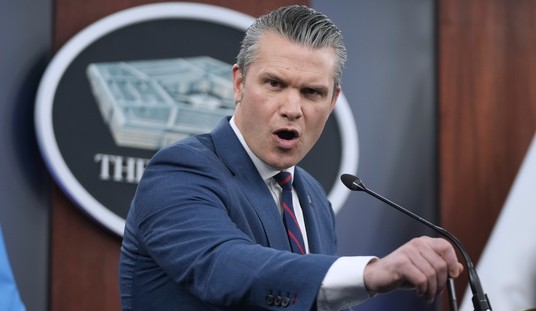Jeb Bush has a fantastically awful idea when it comes to college education. He thinks community college students should get “free” tuition for two years. If that’s sounds familiar, it’s because it’s the exact same thing President Barack Obama proposed in January. Which shows how completely hypocritical Bush is because he came out against Obama’s plan in January. Oh, but Bush’s plan gets even more #headdesk inducing. He wants universities to PAY BACK students who don’t graduate in four years.
If kids can’t graduate with a four-year degree in four years, there ought to be some payback to their families or to them, or their got to be some support for the loans they’ve taken out.
This is so fiscally irresponsible and reprehensible, it’s not even funny. For one, it would cause major federal budget issues because the government has increasingly gotten involved in higher education over the last 50 years. Cato Institute wrote in 2009 how higher education federal spending hit $36.6B, not counting the $31.4B in research grants. College Raptor’s guide to financial aid shows the federal government covers 58% of student aid nationwide. This includes up to $5500 in Perkins Loans and up to $12,500 in Direct Subsidized Loans and Direct Unsubsidized Loans for undergrad students. This doesn’t count the Pell Grants or Supplemental Education Opportunity Grants available either. So it’s possible, Bush’s plan could end up making the federal government pay TWICE in both loans and the payback, because the universities sure aren’t going to use athletics fees to pay students back.
There’s also the problem of how student loans actually make college more expensive. Ex-Secretary of Education William Bennett said in 1987 colleges and universities are raising rates because the Federal loan subsidies help “cushion the increase.” The National Association of College and University Business Officers released a study on Tuesday saying around 90% of freshmen are on financial aid. NACUBO President and CEO John Walda said private colleges and universities are increasing discounts and doing more grant money to students. This goes along with a Federal Reserve Bank of New York study in July noting the connection between student loans and the rise of college tuition. It found universities increased tuition around 65% due to changes in the federal loan program (emphasis mine).
From the second stage, when we control for all forms of aid, we find that each additional Pell Grant dollar to an institution leads to a roughly 55 cent increase in sticker price tuition. For subsidized loans, we find a somewhat larger passthrough effect of about 70 percent. We also find a loading of tuition on unsubsidized loans of 30 percent. All of these effects are highly significant and are consistent with the Bennett Hypothesis. We further control for changes in other revenue sources at the institutional level, and the possibility that certain institutional characteristics may be correlated with both these changes and with tuition changes. We find that the subsidized loan effect is quite robust across specifications both in magnitude and significance, while the Pell Grant and unsubsidized loan effect are less so.
So this shows there’s a connection between rising tuition rates and federal loans. So why is Bush proposing even more subsidization? It could basically end up only rewarding students who waste their time and don’t graduate in four years, or switch majors every semester and end up with a bunch of minors and no real major. Or students who decide in their next-to-last semester of college to flip their major and minor and have to stay an extra semester. Not only that, this could also be seen as a subsidy for student athletes who play for five seasons instead of four. Rice University in Houston announced Tuesday they were going to start doing this. They are a private university, but they also get federal contracts. University of Texas at San Antonio is a public university and they’re going to start giving student-athletes around $2500. University of Houston isn’t one either and student-athletes there get about $4000 if they live on campus and $5500 for those who live off campus. How will the public universities pay for it? Probably by getting more money from the federal government.
So how can the rising cost of tuition be stopped? Cato suggests phasing out federal student aid, plus federal aid to institutions. They also want to get rid of all grant programs which don’t involve national security. This isn’t a bad idea, but it’s going to take time, patience, and the willingness of the electorate to keep their leaders accountable. There isn’t a political offseason, and there never was. This is what the left realized years ago and the right needs to realize a lot more. It shouldn’t take an audio blast from Rush Limbaugh or Glenn Beck or Mark Levin to get something done. People have got to start paying attention more and do a better job at holding the people they elected into office accountable. It’s the ONLY way those who promise to be all “freedom and liberty” will actually stay freedom and liberty.
When Bush proposes policies like this, it’s no wonder why Republicans haven’t won a presidential election since 2004. John McCain tried to run to the left of Obama on mortgages. Mitt Romney wanted to get rid of Obamacare, but also went on NBC and talked about how he was able to get everyone in Massachusetts insured. How is the GOP supposed to be trusted when their candidates propose higher spending without cuts to pay for said spending? This is why fiscal conservatives and libertarians revolted in 2009 with the Tea Party protests. They were looking for fiscal responsibility. What Bush is proposing isn’t that. As much as bloggers have been slamming Donald Trump for not being conservative, Bush is showing exactly why conservatives and libertarians don’t, and can’t, trust him.








Join the conversation as a VIP Member